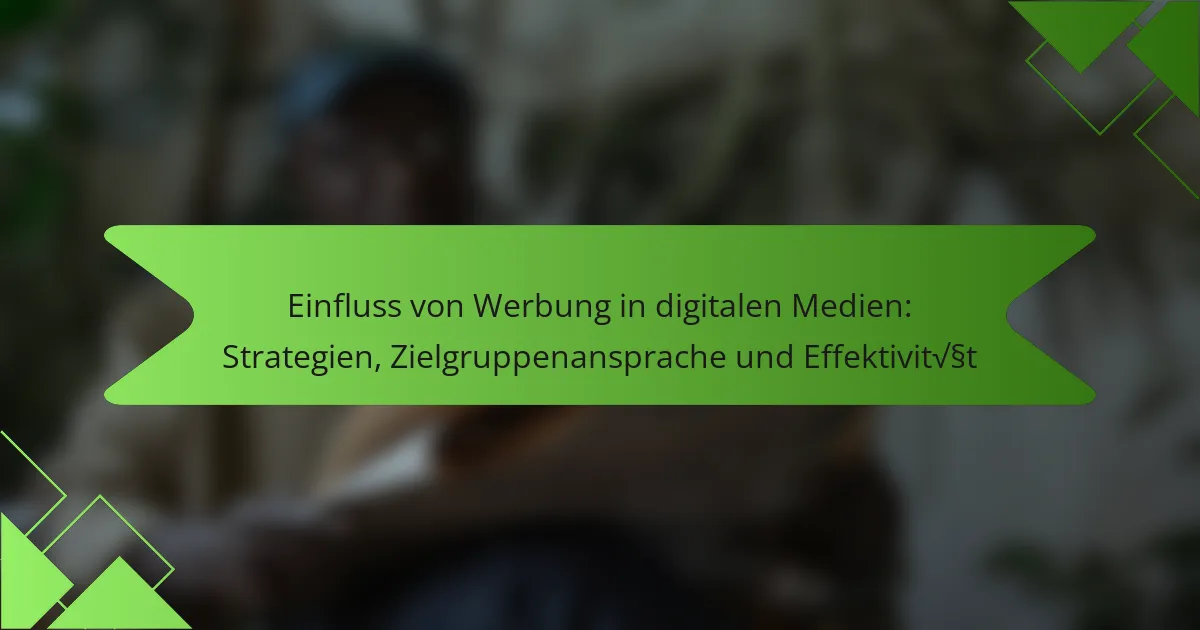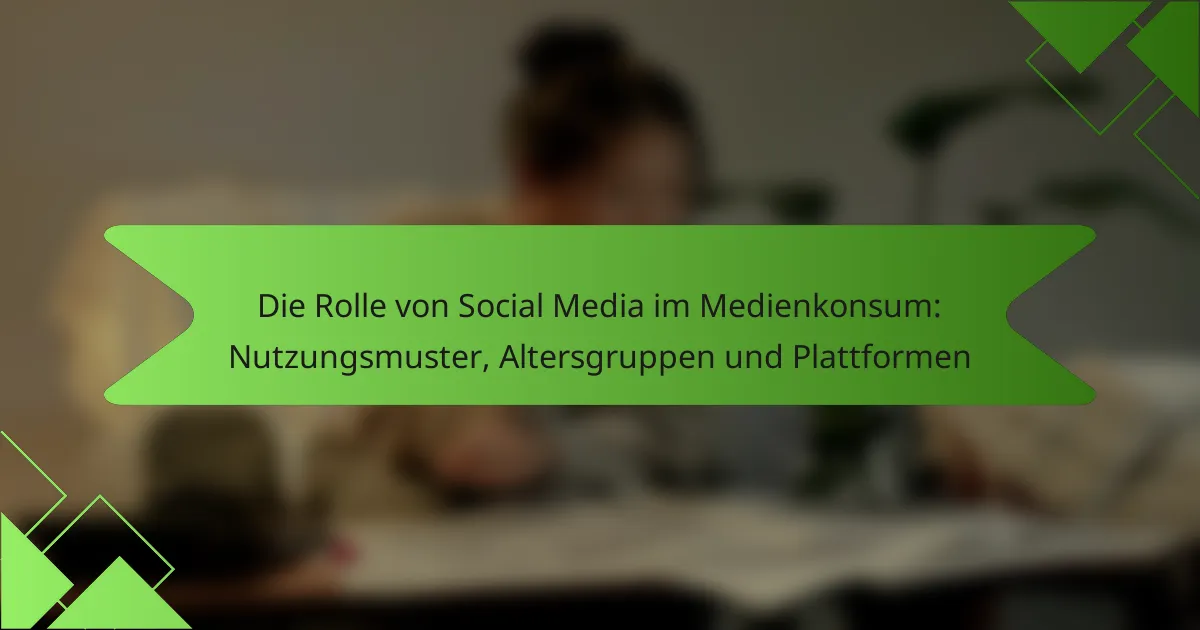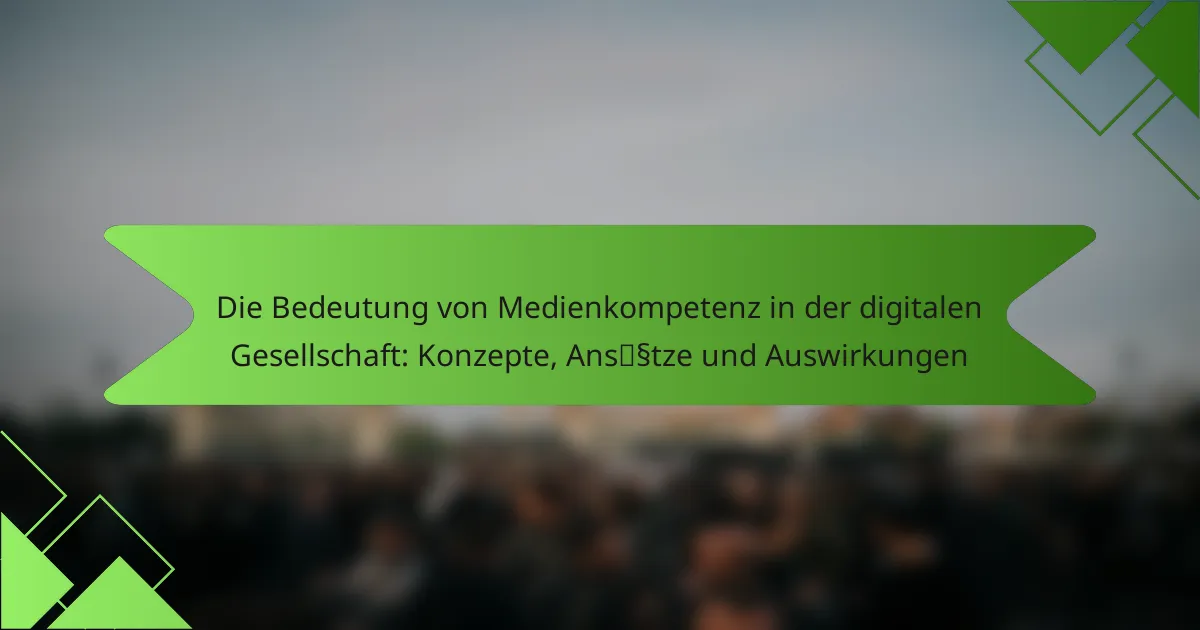Media literacy in the digital society refers to the ability to critically use and evaluate media. This competence includes handling information from diverse digital sources, analyzing content, assessing credibility, and creating and sharing one’s own content securely. It also encompasses understanding the legal frameworks governing media usage. The article explores various concepts and approaches for […]

Die Auswirkungen von Streaming-Diensten auf die deutsche Filmindustrie: Chancen, Risiken und Veränderungen
Streaming services significantly impact the German film industry by increasing funding opportunities for content production and fostering a diverse range of genres and formats. Platforms such as Netflix and Amazon Prime invest billions in local productions, altering viewer consumption habits as audiences increasingly favor on-demand content over traditional cinema. This shift has led to declining […]

Einfluss von Werbung in digitalen Medien: Strategien, Zielgruppenansprache und Effektivität
Digital advertising significantly influences consumer behavior and brand awareness, reaching targeted audiences effectively. Studies indicate that 70% of consumers are swayed by digital ads, with online advertisements generating 20-30% more engagement than traditional methods. Companies utilize demographic data and user behavior to create personalized content, enhancing user interaction. Key performance metrics such as click-through rate […]

Podcasts in Deutschland: Beliebtheit, Genres und Hörgewohnheiten
Podcasts are digital audio content accessible via the internet, covering a wide range of topics from news to entertainment. In Germany, the popularity of podcasts is evident, with 35% of the population listening regularly, as reported by ARD/ZDF in 2022. Key genres include True Crime, Comedy, and News, with True Crime being particularly favored by […]

Fernsehkonsum in Deutschland: Altersgruppen, Vorlieben und Streaming-Dienste
Television consumption in Germany encompasses the viewing habits of the population regarding various formats, including series, films, news, and documentaries. A 2022 study by ARD/ZDF indicates that 90% of Germans watch television regularly, with an average daily viewing time of approximately 3.5 hours. Younger audiences tend to favor streaming services like Netflix and Amazon Prime, […]

Mediennutzung im Homeoffice: Veränderungen, Herausforderungen und Lösungen
Mediennutzung im Homeoffice refers to the use of digital media and technologies to facilitate remote work. This includes communication tools such as email, video conferencing, and instant messaging, as well as access to digital documents and cloud services. The COVID-19 pandemic has significantly increased this media usage, with 73% of companies implementing digital tools for […]

Die Entwicklung von Streaming-Plattformen in Deutschland: Marktanalyse, Nutzerverhalten und Inhalte
Streaming platforms are digital services that allow users in Germany to consume audio and video content over the internet. Since the 2010s, the German streaming market has rapidly evolved, initially dominated by international providers like Netflix and Amazon Prime Video, while local platforms such as Joyn and RTL+ have emerged. User engagement surged during the […]

Die Rolle von Social Media im Medienkonsum: Nutzungsmuster, Altersgruppen und Plattformen
Social media significantly influences media consumption patterns, with users increasingly dedicating time to platforms such as Facebook, Instagram, and TikTok. These platforms provide rapid access to news and entertainment, leading to a notable shift in how information is consumed. Research indicates that 54% of individuals now rely on social media as their primary news source, […]

Medienwirkung von Film und Fernsehen: Emotionale Reaktionen, kulturelle Einflüsse und Zuschauerbindung
The article examines the media effects of film and television, focusing on how audiovisual content influences viewer behavior, attitudes, and emotions. It highlights the dual nature of these effects, encompassing both immediate emotional responses and long-term cultural shifts. Key studies, including Bandura’s research on observational learning, illustrate how films and television can shape viewers’ worldviews, […]

Die Bedeutung von Medienkompetenz in Deutschland: Strategien, Bildungsansätze und Auswirkungen
Medienkompetenz in Deutschland refers to the ability to critically use and evaluate media, encompassing both technical skills and an understanding of content and context. It is recognized as a crucial component of education, with schools integrating media education into curricula to prepare students for the digital landscape. The article outlines various strategies for promoting media […]
